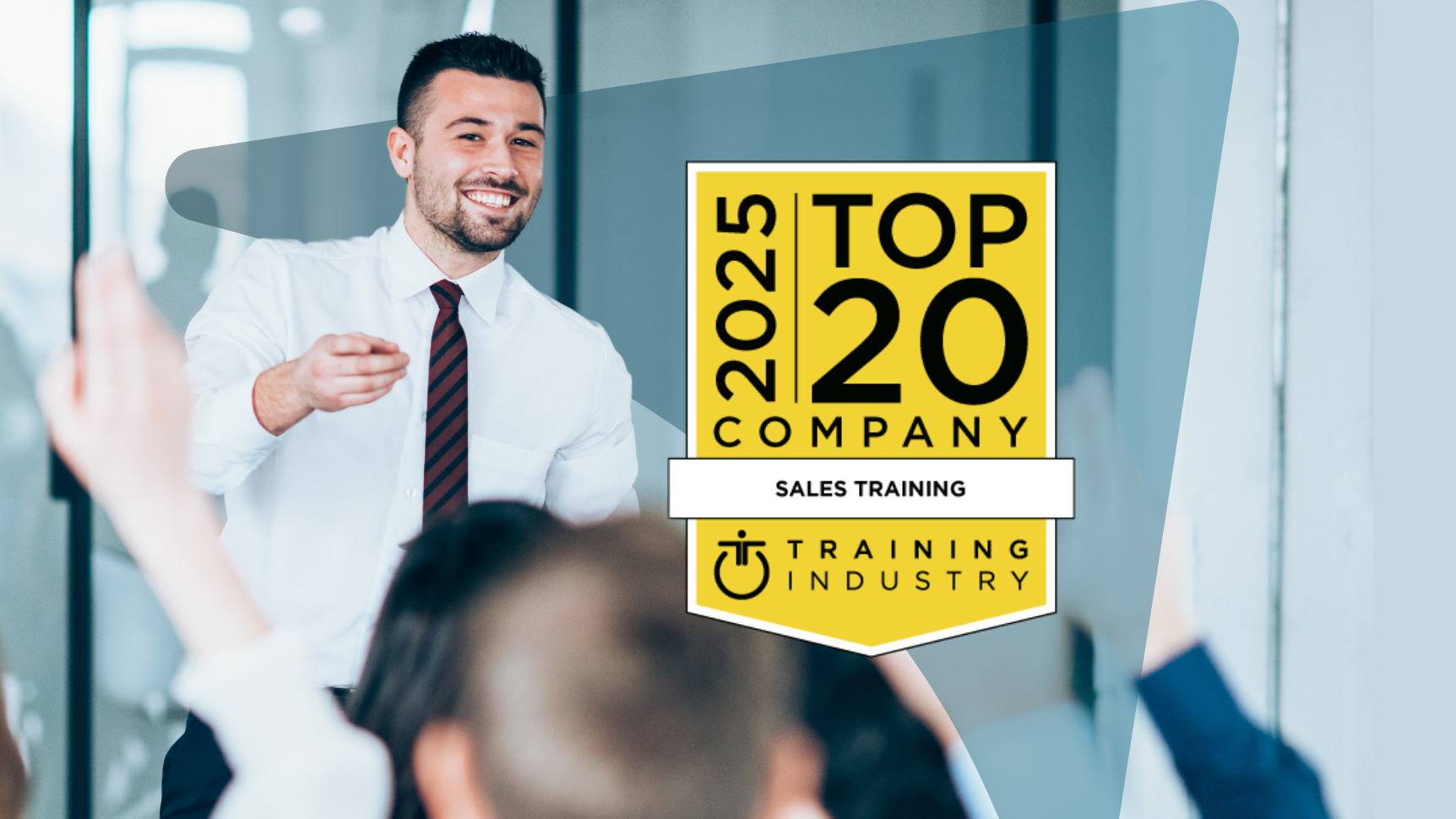The best salespeople take on the Tom Brady mindset.
After playing college football at Michigan, Tom Brady was selected by the New England Patriots in the 6th round of the 2000 NFL Draft, coming in as the overall 199th pick.
He went on to win 6 Super Bowls with the Patriots, a 7th with the Tampa Bay Buccaneers, and just about every award the NFL has to offer.
His secret? He never took the chip off of his shoulder. He always stuck to the basics, trusted the process, and never got too comfortable. After all, he was passed over for most of the draft and deemed unworthy of playing on most teams.
Even though he is now commonly accepted as the greatest football player of all time, Brady kept to his fundamental skills — always working to make sure his career did not fall apart, landing him back where he started as the 199th pick.
According to Matt Doyon, Co-Founder and CEO of Triple Session, the best sellers take on the Tom Brady share this drive. On a new episode of Winning The Challenger Sale, our guest Matt shares lessons from more than two decades of sales experience. They’re also featured in his book Revenue Revolution.
Listen to “#103: Positive Paranoia with Matt Doyon” on Spreaker.
Not ready to listen right now? Head over to your preferred podcast platform and like/download the episode.
Building a strategy for 2024
The truth is the sales landscape of today is entirely unique — mostly because the environment for the last 20 years is what Matt calls “artificial.”
Baby Boomers were the largest generation in US history, and they offered boatloads of capital to the market, with the last two decades bringing their time of highest earnings with the lowest costs.
While in their 50s and 60s, Baby Boomers had their homes paid off, their kids out of their homes, and more available money than ever before. Now, they’re retiring by the masses — and they’re taking their money out of the market with them.
This is not a temporary shift. Matt expects this to become the normal environment over the next 15 years or more. This is why he believes we need to have what he’s coined the “Revenue Revolution.”
“We need to rethink the way that we rebuild our sales and customer success organizations and focus on operationalizing them for maximum efficiency. With that, it takes a new strategy. What got us here will not get us to the next level,” Matt says.
So, what should the new strategy look like? Matt believes adapting to the new market begins with embracing fundamentals.
Moving the needle with a day-by-day schedule
Most sales personnel and managers work on quarterly goals, and some even break those down into monthly milestones. Instead, Matt encourages us to drill down into the daily inputs from a team perspective, then for each individual on the team.
“Those daily inputs are the only things we can control,” Matt says.
To return to the sports analogy, great teams do not put blinders on and hyper-fixate on the upcoming game — instead, they focus on today’s practice.
In other words, what moves the needle closer to the goal between 8 a.m. and 6 p.m.?
Those components may look different for everyone, but Matt believes there are some tried and true best practices that spark small changes in your daily routine that promise major improvements to your outcomes.
- Step one: This step starts the night before. Finish your day with at least a 15-minute preview of the day ahead. Matt encourages us to understand what is coming up on the horizon, ensure we are prepared, and add extra time for necessary prep work.
- Step two: Schedule 15 minutes in the morning to get your head in the game. Matt tells us that we need to sharpen and wake up our brains in the morning — and scheduling that into our day sets us up for success.
Matt suggests approaching this as a quick learning “micro session.” Listening to a thought leader, building a skill, or having a thoughtful conversation with a manager will set the tone for success for the day.
“So much of our success rests on preparation and finding that flow state. It’s not an accident when things fall into place, it is a skill that can be harnessed, and we can hardwire ourselves to get into those types of flow states as much as we possibly can,” Matt says.
Understanding and getting ahead of trends
When discussing clients who may be apprehensive about changing their ways, Matt explains that no one is required to adopt these changes — but they should at least consider it.
Matt looks back on the advent of the electronic calculator in 1961. While many were ecstatic with the new technology options available, there were still some accountants who were keen on sticking to their old-school, paperwork-based ways.
“You could do that, but by 1962, you’d be going out of business,” Matt says.
With the calculator, companies became faster and smarter, had fewer errors, and could take on all of their competitors.
“So, can you see around the corner? The name of the game is understanding where the trends are and getting ahead of them. We can’t rely on what got us here to get us where we want to go,” Matt says.
With a new economic environment and technological advancements such as AI, sales teams are going to have to change their methods to remain cutting-edge.
Formalizing personal skills
One important area of growth lies in coaching sellers, especially those new to the job. Matt contends that college isn’t enough to prepare these new sellers for their careers. Luckily, formal, technical on-the-job training is available. From prospecting to discovery to running demos, new sales reps will likely encounter systems to teach them these skills. What’s harder to acquire is the professional and personal skills those new sellers will also need to succeed.
“If we are going to be great sales professionals or great business professionals in general, we also have to be great humans,” Matt says.
That takes learning “soft skills” such as time management, business acumen, professional communication skills, and more. Managers must pass their knowledge of these skills down to their team members, just as they might teach them how to use a CRM. That means getting comfortable addressing topics such as emotional intelligence, growth, accountability, and work ethic.
When managers take on these topics and present them to their teams, they can experience holistic, team-wide growth.
The perpetual “positive paranoia” mindset
Matt compares sales to driving. With more experience, drivers become more complacent and comfortable. That means we’re actually becoming worse drivers over time, rather than constantly improving our skills.
The same is true in sales. When a rep gets several deals closed and appears to be at the top of their game, they start skipping steps of the sales process and missing cues and opportunities.
This means they become worse at sales over time unless they stick to the process. Instead, Matt says, winning sellers must constantly be asking “what did I miss?”
“It is that perpetual paranoia where they constantly believe they are not good enough. The best-in-class AEs will thrive in this new environment,” Matt says.
That means honing in on the basic questions every single time. “Did I miss a step? Am I connecting? Do I need to drill deeper here?”
Paranoia doesn’t have to be negative. By adding a bit of “positive paranoia” to the year ahead, we can ensure that yesterday’s wins don’t roll into tomorrow’s losses.
To hear this episode, and many more like it, you can subscribe to the Winning The Challenger Sale podcast on our website, Apple Podcasts, Spotify, or just search for it in your favorite podcast player.
Andee Harris
Andee Harris is CEO of Challenger. Andee brings more than two decades of experience growing and scaling service and technology businesses. She has previously led multiple companies, both as CEO and Senior Vice President, through periods of rapid revenue growth, critical fundraising, and successful acquisition. These companies include Highground (acquired by Vista Equity Partners), TMBC (acquired by ADP), Syndio and Emerging Solutions (acquired by Emtec).
More from our blog
Challenger’s guide to sales transformation
Key takeaways Challenger’s approach to driving predictable revenue and sustainable growth is known as commercial transformation Transformation goes…
Strengthen Your Coaching Skills with Challenger’s PAUSE Framework
There’s only one seller productivity investment endorsed as more important than all others by Matt Dixon and Brent Adamson, authors of “The…
Richardson and Challenger named a Top 20 Sales Training Company
Richardson and Challenger celebrate its selection today as one of Training Industry’s 2025 Top 20 Training Companies™ for the Sales Training and…
What are you waiting for?
Transform your sales team.
The best companies grow, and grow fast, by challenging customers, not by serving them.






